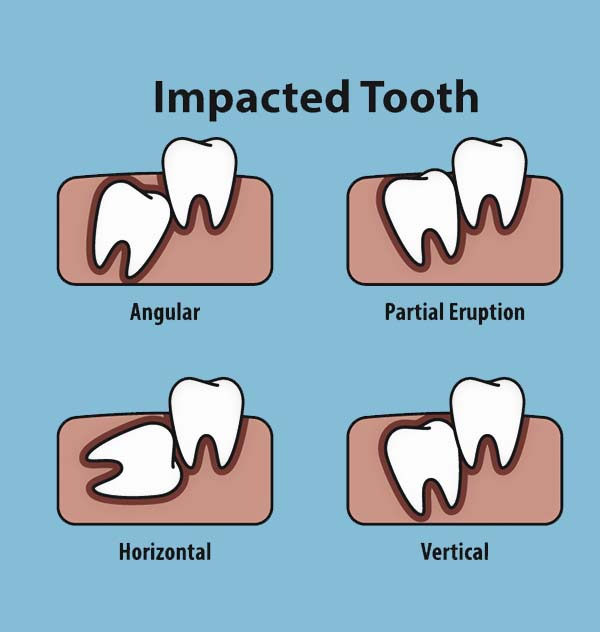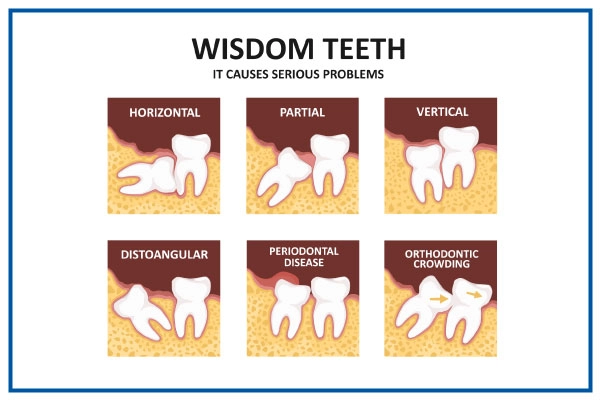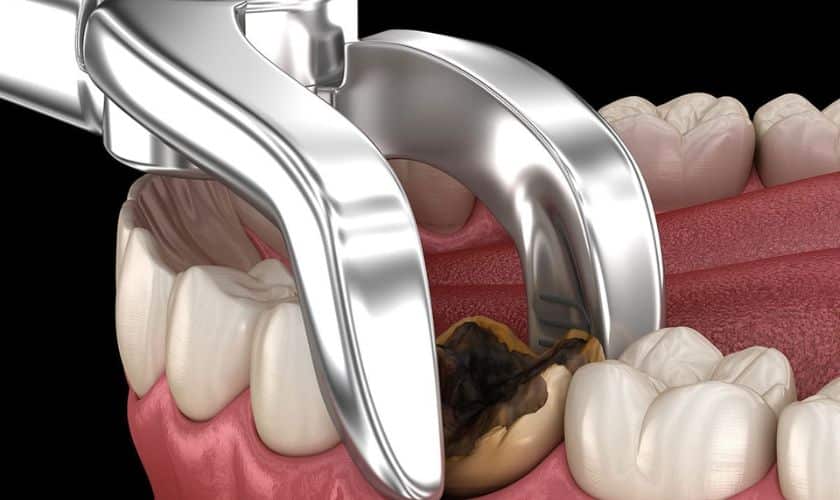Comprehensive Overview to Wisdom Teeth Removal Aspendale: What to Expect
Comprehensive Overview to Wisdom Teeth Removal Aspendale: What to Expect
Blog Article
Exploring Different Sedation Options for a Comfy Knowledge Teeth Removal Experience
The usage of sedation during such treatments has actually ended up being increasingly common to reduce anxiety and pain. With a range of sedation alternatives available, from local anesthetic to general anesthetic, each technique supplies varying degrees of leisure and pain control.
Local Anesthetic
Local anesthetic is a frequently made use of method for numbing particular areas of the mouth throughout knowledge teeth extraction treatments. By administering a local anesthetic, such as lidocaine, a dental practitioner can guarantee that the patient continues to be comfy and pain-free throughout the extraction process.
Among the main benefits of neighborhood anesthesia is its targeted numbing result, which implies that just the particular location being dealt with is affected. This local strategy reduces the danger of systemic side impacts and permits a quicker healing post-procedure. In addition, neighborhood anesthetic is taken into consideration to be a regular and secure method in dental care, with very little dangers entailed when administered by a trained specialist.
Laughing Gas
Nitrous oxide, commonly recognized as chuckling gas, is a type of sedation typically used in dental care to assist clients loosen up throughout dental procedures. This sedation alternative permits the person to remain conscious and responsive throughout the treatment while feeling at ease and comfy.
As soon as the mask is eliminated, the results of the gas use off swiftly, permitting clients to resume their regular activities without lingering sedative effects. Nitrous oxide is suitable for clients of all ages, making it a functional sedation option for wisdom teeth removals and various other dental treatments.
Dental Sedation
Oral sedation, a medicinal method utilized in dentistry, includes the administration of sedative drugs by mouth to cause an unwinded state throughout dental procedures. This form of sedation is frequently utilized for individuals undertaking wisdom teeth extraction to reduce anxiety and discomfort. The medicines recommended for oral sedation come from a course of medicines called benzodiazepines, which have sedative, anxiolytic, and amnesic residential or commercial properties. Usually, the person takes the prescribed medicine before the procedure, permitting adequate time for the sedative impacts to hold.
Among the key advantages of dental sedation is its ease of administration. Unlike intravenous sedation, oral sedation does not call for shots or needles, making it a more comfy alternative for individuals with an anxiety of needles. In addition, oral sedation is considered reliable and risk-free when administered by qualified oral experts. However, it is important for patients to adhere to pre-operative instructions provided by their dentist, such as avoiding eating or consuming prior to the procedure to ensure the sedative drug functions as planned.
IV Sedation
Administered intravenously by experienced doctor, IV sedation is an effective approach made use of to cause a regulated state of deep leisure and unfamiliarity during oral procedures. Unlike oral sedation, which can be uncertain in its effects, IV sedation enables accurate control over the degree of sedation, making it an excellent choice for complex treatments like knowledge teeth removals.
During IV sedation, a sedative medication is provided directly into the blood stream via a capillary, allowing it to work promptly and efficiently. This approach makes sure that the client continues to be comfortable and unaware of the procedure web link while still maintaining vital features such as breathing and heart rate.
One of the primary benefits of IV sedation is its ability to give a much deeper degree of sedation compared to various other methods, making it especially ideal for patients with high degrees of anxiousness or those undertaking extensive dental work (wisdom teeth why not try this out removal aspendale). Furthermore, the impacts of IV sedation commonly subside gradually after the treatment, minimizing the possibility of grogginess or sticking around negative effects. Generally, IV sedation provides a efficient and safe option for making certain a comfortable and stress-free experience during wisdom teeth extraction

General Anesthetic
Having actually reviewed the advantages of IV sedation for wisdom teeth removal, the utilization of basic anesthesia provides an alternate option for clients needing a deeper level of unfamiliarity throughout oral procedures. General anesthetic induces a controlled state of unfamiliarity, making sure the client really feels no pain or pain during the removal procedure. This method is especially valuable for individuals with extreme dental anxiousness, complicated medical needs, or those going through numerous extractions all at once.
General anesthetic is administered by a skilled anesthesiologist who closely keeps track of the person's essential indications throughout the treatment. It entails using intravenous drugs or inhaled gases to induce a state of unconsciousness. While under general anesthetic, the individual will not understand the surgical procedure, experience any discomfort, or have any kind of recollection of the procedure afterward.
Although general anesthetic is safe when carried out by certified specialists, it carries a slightly greater risk compared to other sedation choices - wisdom teeth removal aspendale. People thinking about basic anesthesia for knowledge teeth removal Full Article need to review the potential risks and advantages with their dental professional or oral doctor to make an educated choice based upon their specific demands and case history

Verdict
Finally, various sedation alternatives are available to make certain a comfy knowledge teeth removal experience. Regional anesthesia is typically used for numbing the particular area, while nitrous oxide provides leisure and discomfort relief. Oral sedation and IV sedation deal much deeper levels of relaxation, depending on the person's demands. General anesthetic can be used for more complex cases. It is vital to seek advice from with your dentist or dental specialist to figure out the most ideal sedation option for your procedure.
Nitrous oxide is suitable for people of all ages, making it a functional sedation option for knowledge teeth extractions and various other dental procedures.

Report this page